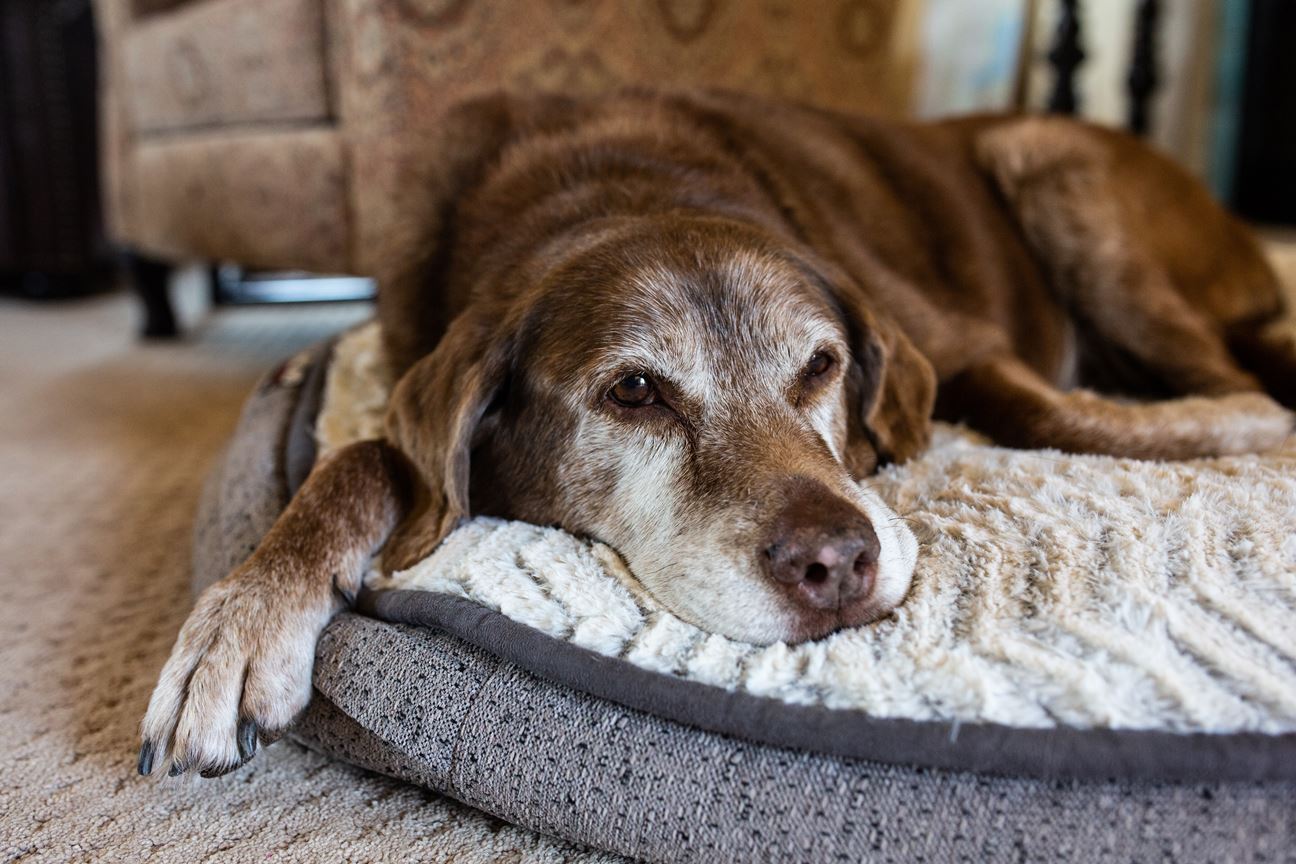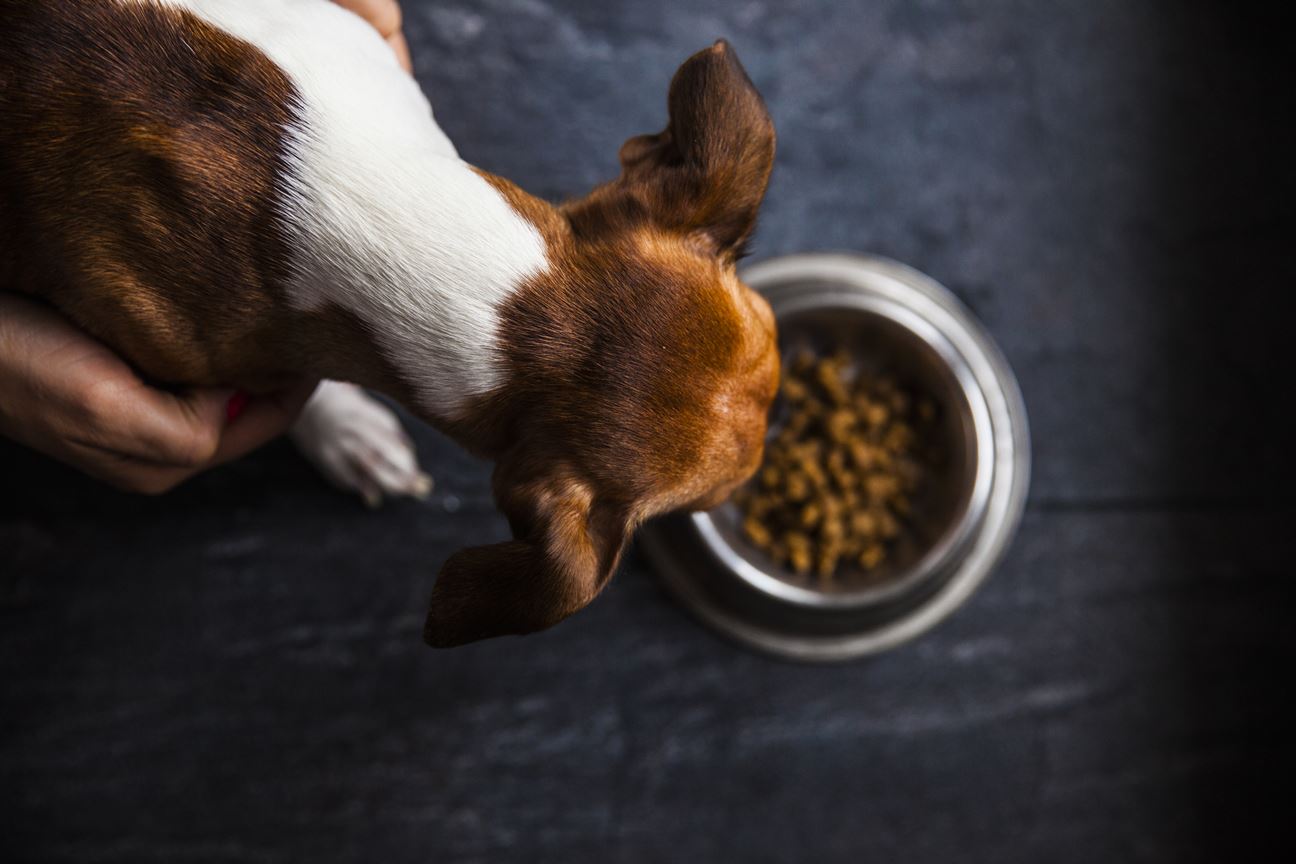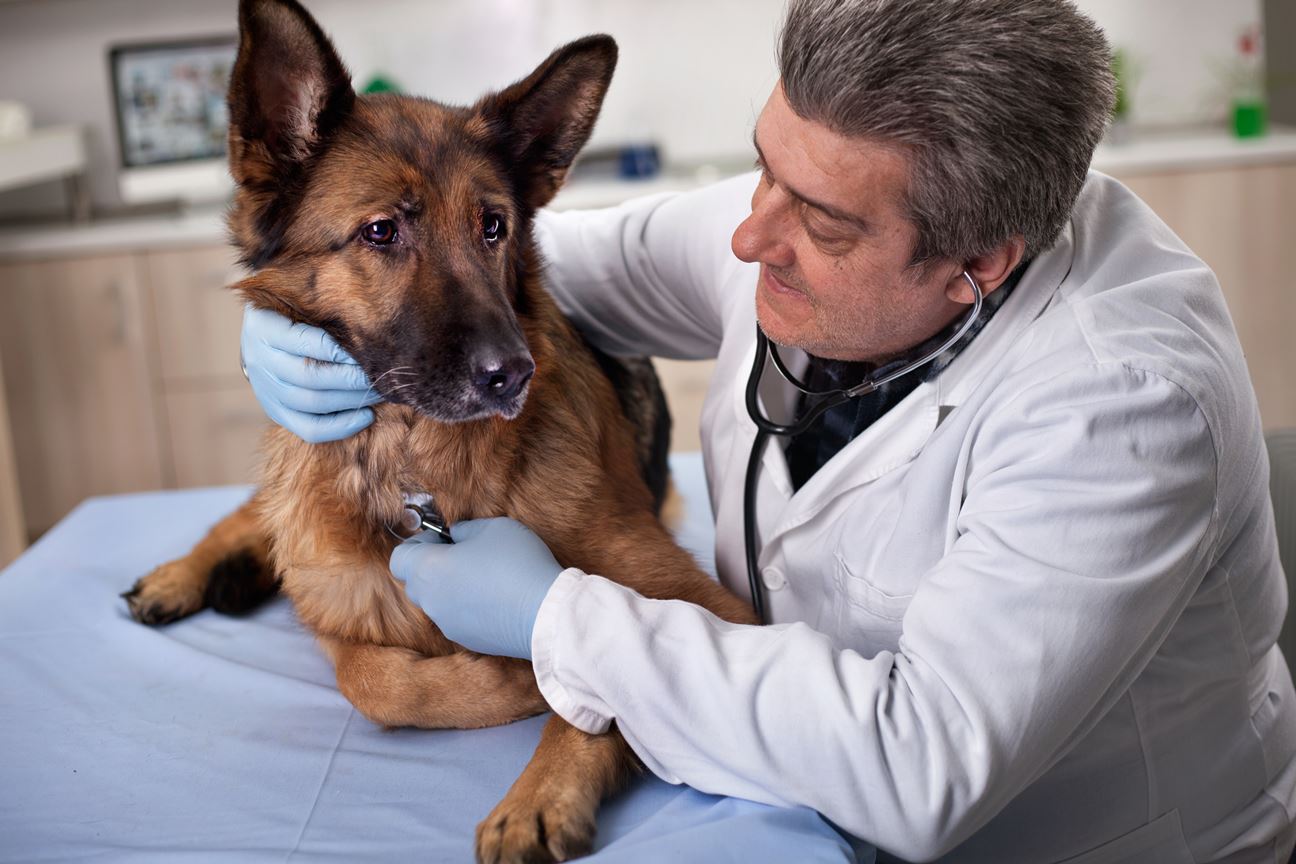Dogs are unique in their own ways, and so are their senior years. Caring for your older dog doesn't have to be daunting if you are well-prepared.
The best part about having a dog home is that little puppy looking up to you and loving you unconditionally. It is like having a friend that will always cheer for you. Every time you open a treat, it’s like Christmas for them. Dogs live their entire life in euphoria. The kind of happiness that we humans can spend years looking for.
We all want our dogs to live with us forever, but unfortunately, dogs don’t live as long as we'd have liked. An average lifespan of a dog is between 10 to 13 years. And all those years can be absolutely cherishable — yes, even when they get older. Here's how!

How old is old?
When is your dog called a ‘senior’? On average, a dog is considered a ‘senior’ when it reaches seven years of age. But this does not make your dog geriatric yet. This life transition in a dog’s life is similar to humans at the age of 50-55 years. There are many factors that come into play here. The biggest factor being the dog’s breed. This may not be a hard-and-fast rule, but larger dogs are known to age faster compared to smaller dogs. For example, dogs like Chihuahua are considered ‘senior’ only at ages nine or ten. Other ageing factors include the dog's diet and exercise. Heavier-set dogs have a greater risk of obesity and heart diseases. The increased pressure on their knees may also lead to the development of arthritis. Of course, this can be taken care of by ensuring regular playtime and a set walking routine. Family genetics is also an important factor that determines your dogs’ senior years. If you have bought the dog from a dog breeder, it would be easy to keep track of your dogs’ parents’ medical history.
Making food choices for a senior dog
Senior dogs are a little different when it comes to nutrition. As the dog ages, his caloric requirement goes down due to decreased movement. A dog’s metabolic rate changes as he ages which results in fewer calories getting burned. It is very important that your dog’s food intake is monitored at this age, otherwise excess eating can result in fat deposit in the body. A study conducted showed that senior dogs require 20 to 25% fewer calories than dogs in their prime. Senior dog care usually starts with what they eat.

When it comes to choosing food for senior dogs, consider the following key things:
- Taste - Dogs are not picky eaters like cats. But as they get older, they may even turn away from their favourite food. And so you will have to give a little more attention to the food that the dogs will find more palatable.
- Balance of calories and nutrients - With decreased activity comes to a need for less energy. If the dog keeps eating the same amount of food as from his prime, it would lead to an increase in weight and put undue pressure on its tender joints. If you feed him larger portions, you can also start cutting down on those. Foods for senior dogs should have relatively fewer carbohydrates and fats. You can do away with this fast-burning energy when setting up your dog’s food.
- Good quality protein - Instead you can start feeding him more slow-burning food like some good quality protein. This will help the dog maintain a healthy body weight and muscle mass without putting too much pressure on his kidneys. If your dog is used to eating a certain kind of protein all his life, like say chicken or beef, they tend to build up sensitivities towards the protein. This tends to put a lot of pressure on their digestive systems. And so, it is a good idea to start including novel protein sources when fixing up your senior dog’s diet.
- High fibre - This one is easy to understand. The digestive systems of your senior dogs may not be at their optimal and hence an extra bit of dietary fibre or roughage will help keep the food passing through.
- High water content - Irrespective of the weather, it is important to monitor the moisture content in your senior dog’s body. As they age, they can easily become dehydrated and for this reason, make sure the meals you feed them contain lots of liquids. Additionally, make sure the senior dog has plenty of fresh water to drink. Switching over completely to wet food can also be a good idea.
- Whole and organic - Nothing artificial for older dogs. Attractive colours and flavours should be avoided. Instead, focus on including whole and organic food items in your senior dog’s food. This comes in many varieties - canned, frozen treats, and dry kibble.
- Low in sodium - A low or reduced-sodium diet will help your senior dog maintain a healthy bodily function. Sodium is an important mineral that helps in maintaining healthy cells and preventing them from swelling or dehydrating. In older dogs, however, there is a chance of accumulation of excessive body fluid. And so, it is best to monitor your senior dog’s sources of sodium.
- Supplements - Most food that you buy off the store will have all the essential nutrients that will ensure a well-rounded diet for your senior dog. But in case you plan on cooking your dog’s meal at home, make sure you include glucosamine, antioxidants, and omega-3 fatty acids in the meals. Energy boosters like taurine and L-carnitine should also be included in senior dog’s meals.
Dental hygiene
As they age, dogs become more susceptible to tooth decay and periodontal diseases. Most gum diseases begin when plaque starts to settle on the surface of teeth. When hardened, this turns into dental calculus or tartar. If these bacteria get under the gum tissues, the supporting tissues and lining of the tooth can also get damaged. It is easy to recognise periodontal diseases in senior dogs. If your dog has foul-smelling breath, a visible plaque build-up, and shows behavioural changes like gulping food instead of chewing or slobbering water, it is time to book a vet appointment. But this is entirely preventable. To ensure that your senior dog’s dental hygiene is maintained, start by brushing his teeth at least 3 to 4 times a week. Under the instructions of the vet, also starts rinsing the dog’s mouth with chlorhexidine. Additionally, you can give your dogs treats and chew toys that help prevent tartar build-up.
Walk? Exercise?
There are many ways to keep senior dogs active. Daily walking and low-impact exercises can help your dog stay fit. Your senior dog may not be able to go on hikes with you, but can definitely enjoy a nice stroll around the neighbourhood. If your dog has weaker legs, make sure you make him walk on flat surfaces. At first, take it slow, but with time, you can increase the pace and distance. Before you head out, make sure to give the dog a warm-up session. A few laps around the house should help.
If you are thinking of including low-impact exercises, do consult with your vet first. Most dogs above the age of eight show signs of arthritis and so chalk out a few fun activities that would be easy on their joints. This can include swimming or gentle playtime inside the house. In addition to the physical activity, be sure to add some mental exercise to your dog’s routine. Mentally stimulating games like hide and seek, and finding a treat will keep your dog happy and active even inside the house.
Whatever routine you choose, make sure you stick to it.
Keeping an eye on common health issues in dogs
Familiarising with the most common senior dog ailments will help you keep an eye on your dog’s condition. Here are some of the most common diseases that affect senior dogs.
- Diabetes - Diabetes in dogs is usually hereditary and mostly affects female dogs. Dogs older than 8 years are more prone and the cause is usually poor insulin production. Look out for symptoms like fatigue, drastic weight loss, and frequent urination.
- Arthritis - This one is a very common disease in senior dogs. As the dog gets older, the cartilage in the joints begins to wear and tear. While there is no cure for this progressive disease, catching the signs early will help you adopt preventive measures.
- Cancer - Older dogs are at a higher risk of developing different types of cancer - including breast cancer and lymphoma. Other types can include anal sac cancer, bladder cancer, hemangiosarcoma, and liver cancer.
- Kidney Trouble - In senior dogs, most kidney trouble starts with the wearing out of the tissues in the kidneys. The dog kidney disease can be acute or chronic, and some symptoms include frequent urination, nausea and vomiting, mouth ulcers, and pale gums.
- Dementia - Just like in humans, dogs at older ages can suffer from dementia, or Canine Cognitive Dysfunction (CCD). Watch out for signs like general anxiety, disturbances in sleep patterns, pacing, disorientation, and inappropriate vocalization.
Visit the vet!

Timely veterinary attention will help your dog live better and even longer. The following are some signs that you must watch out for:
- Stiffness/Mobility issues - If the dog is taking longer than usual to move around, getting up, or sitting down, this can be a sign of arthritis.
- Limping - The fact that your senior dog is limping means it is hurting. Do not ignore this one.
- Changes in appetite - A change in appetite is usually associated with disease processes. One must look for signs of diabetes.
- Changes in toilet habits - Frequent peeing, diarrhoea, or constipation can point at the onset of diseases related to kidneys and pancreas.
- Weight loss - If your dog is not eating on time, or avoiding food altogether, this can lead to a drastic weight loss and needs to be checked out with the doctor.
- Changes in body shape and size - This is different from a simple weight loss/gain. If you observe bloating or loss of muscle, it is time to consult a vet.
- Behavioural changes - Increased or unnecessary barking, howling or sniffing.
Tips to make your senior dog feel comfortable
Apart from maintaining a healthy feeding schedule and providing essential supplements to your senior dog, make sure that you make their lives a little more interesting. This can include more family time or setting up a nice cosy corner for them. Making small changes like raising food and water bowls, adding a bunch of rugs at their favourite spots, playing soothing music, and showing them plenty of love and affection will go a long way in making the rest of their years with you happy ones.